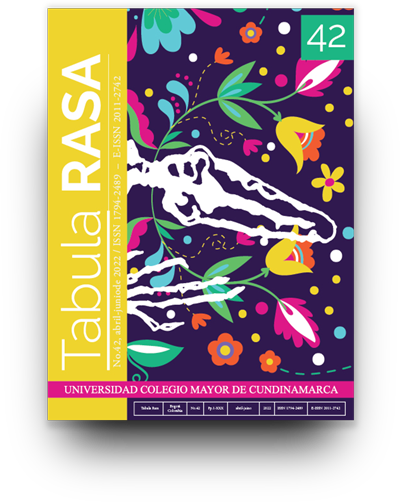Show authors biography
This article analyses the complementarity of Marxism (the democratic version of the 21st century) and decolonization (the radical decoloniality of the 21st century) as living theories and true ideas of liberation. Its focus is on the articulations of Marxism and Black liberation by such selected Black figures such as Aime Cesaire, Abdel Khaliq Mahgoub, Amilcar Cabral and Walter Rodney. These figures produced what is introduced is introduced here as Black Marxist decoloniality. At the centre of this Black Marxist decoloniality is the intersections of Marxism and decolonization to deepen the analysis of capitalism and colonialism as inextricably intertwined sources of modern problems. Orthodoxy Marxism is not only stretched so as to reflect on the Black condition but is also democratized to open it up to embrace other anti-racist, anti-slavery, anti-capitalist, anticolonialist, and anti-heteropatriarchal sexist movements of liberation. The decolonization of the 20th century is equally stretched beyond its capture by bourgeois elites who sought to replace white colonialists without changing the racially hierarchical and gendered modern world system.
Article visits 132 | PDF visits 87
Downloads
- Amin, S. (2019). Only people make their own history: Writings on capitalism, imperialism and revolution. New York: Monthly Review Press.
- Becker, M. (2017). Twentieth century Latin American revolutions. New York & London: Rowman & Littlefield Publishers.
- Cabral, A. (1979). Unity and struggle: Speeches and writings of Amilcar Cabral. New York: Monthly Review Press.
- Cabral, A. (1973). Return to the source: Selected speeches by Amilcar Cabral. New York: Monthly Review Press.
- Cabral, A. (1972). Revolution in Guinea: Selected texts by Amilcar Cabral. New York: Monthly Review Press.
- Cabral, A. (1966). “The weapon of theory.” Conferencia dictada en la Primera conferencia Tricontinental de los Pueblos de Asia, África y América Latina. La Habana, Cuba, https://www.marxists.org/subject/africa/cabral/1966/weapon-theory.htm
- Cesaire. A. (2012 [1956]). “Letter to Maurice Theroz: General Secretary of the French Communist Party, October 24, 1956.” In S. M. Hassan. “How to liberate Marx from his eurocentrism: Notes on Africa/Black Marxism”, DOCUMENTA, 13, 32-36.
- Cesaire, A. (2000 [1955]). Discourse on colonialism. New York: Monthly Review Press.
- Cock, J. & Luxton, M. (2013). “Marxism and feminism: ‘Unhappy marriage’ or creative partnership?” In M. Williams & V. Satgar (Eds.), Marxisms in the 21st century: Crisis, critique and struggle (pp.116-142). Johannesburg: Wits University Press.
- Dabashi, H. (2019). Europe and its shadows: Coloniality after empire. London: Pluto Press. Dussel, E. (1995). The invention of the Americas: Eclipse of the “Other” and the myth of modernity. New York: Continuum.
- Dussel, E. (1993). Eurocentrism and modernity (Introduction to the Frankfurt Lectures). Boundary 2, 20 (3), 65-76.
- Fanon, F. (1968). The wretched of the Earth. New York: Grove Press.
- Foster, B. Clark, B. & Holleman, H. (2020). “Marx and the Indigenous.” Monthly Review, 7(9), 1-28
- Fukuyama, F. (1992). The end of history and the last man. London: Penguin Books.
- Green, E. F. (1998). Socialist internationalism: Theoria and praxis in Soviet international law. Yale Journal of International Law, 13(2), 306-331.
- Grosfoguel, R. (2007). The epistemic decolonial turn: Beyond political-economy paradigms. Cultural Studies, 21(2-3), 211-223.
- International Marxist Tendency (2010). “For the Fifth International.” In: http://www.marxist.com/for-the-international/print.htm
- Lenin, V. I. (1916). Imperialism: The highest stage of capitalism. New York: Monthly Review Press.
- Maldonado-Torres, N. (2011). Thinking through the decolonial turn: Post-Continental interventions in theory, philosophy, and critique—An introduction. Transmodernity, 1(2), 1-15. https://doi.org/10.5070/T412011805
- Mahgoub, A. K. (2012 [1959]). Abdel Khaliq Mahgoub: By virtue of marxism, your honor. In S. M. Hassan. How to liberate Marx from his eurocentrism: Notes on Africa/Black marxism., Documenta, 13 (pp.15-29). Berlin: Hatje Cantz
- Ndlovu-Gatsheni, S. J. (2020). Decolonization, Development and knowledge in Africa: Turning over a leaf. New York & London: Routledge.
- Ndlovu-Gatsheni, S. J. (2018). Epistemic freedom in Africa: Deprovincialization and decolonization. London & New York: Routledge.
- Ndlovu-Gatsheni, S. J. (2016). The decolonial Mandela: Peace, justice and the politics of life. Oxford & New York: Berghahn Books.
- Ndlovu-Gatsheni, S. J. (2013a). Coloniality of power in postcolonial Africa: Myths of decolonization. Dakar: Codesria Books.
- Ndlovu-Gatsheni, S. J. (2013b). Empire, global coloniality and African subjectivity. New York & Oxford: Berghahn Books.
- Ndlovu-Gatsheni, S. J. & Ndlovu, M. (Eds.) (2022). Marxism and decolonization in the 21st Century: Living theories and true ideas. London & New York: Routledge.
- Nkrumah, K. (1965). Neo-colonialism: The last stage of imperialism. London: Panaf Press. Nzongola-Ntalaja. (1984). Amilcar Cabral and the theory of national liberation struggle. Latin American Perspectives, 41(11), 43-54.
- Quijano, A. (2000). Coloniality of power, eurocentrism, and Latin America. Nepantla: Views from the South, 1(3), 533-579.
- Rodney, W. (1975). Marxism and African liberation. In: https://www.marxists.org/subject/africa/rodney-walter/works/marxismandafrica.htm (Accessed 27/12/2020).
- Robinson, C. J. (2000). Black Marxism: The making of the Black radical tradition. New York: The University of North Carolina Press.
- Santos, B. S. (20218). The end of the cognitive empire: The coming of age of epistemologies of the South. Durham & London: Duke University Press.
- Said, E. W. (1994). Traveling theory reconsidered. In R. Polhemus & R. Henke (Eds.), Critical representations (pp.197-214). Stanford: Stanford University Press.
- Sewell, R. (2014). 4th August 1914: The great betrayal and collapse of the Second International. https://www.marxist.com/4th-august-1914-the-great-betrayal-and-collapse-of-the-second-international.htm
- Wallerstein, I. (1984). The politics of the world-economy: The states, the movements and the civilizations. Cambridge: Cambridge University Press.
- Williams, M. (2013). Marxism and democracy: Liberal, vanguard or direct? In M. Williams & V. Satgar (Eds.). Marxisms in the 21st century: Crisis, critique and struggle (pp.16-33). Johannesburg: Wits University Press.




